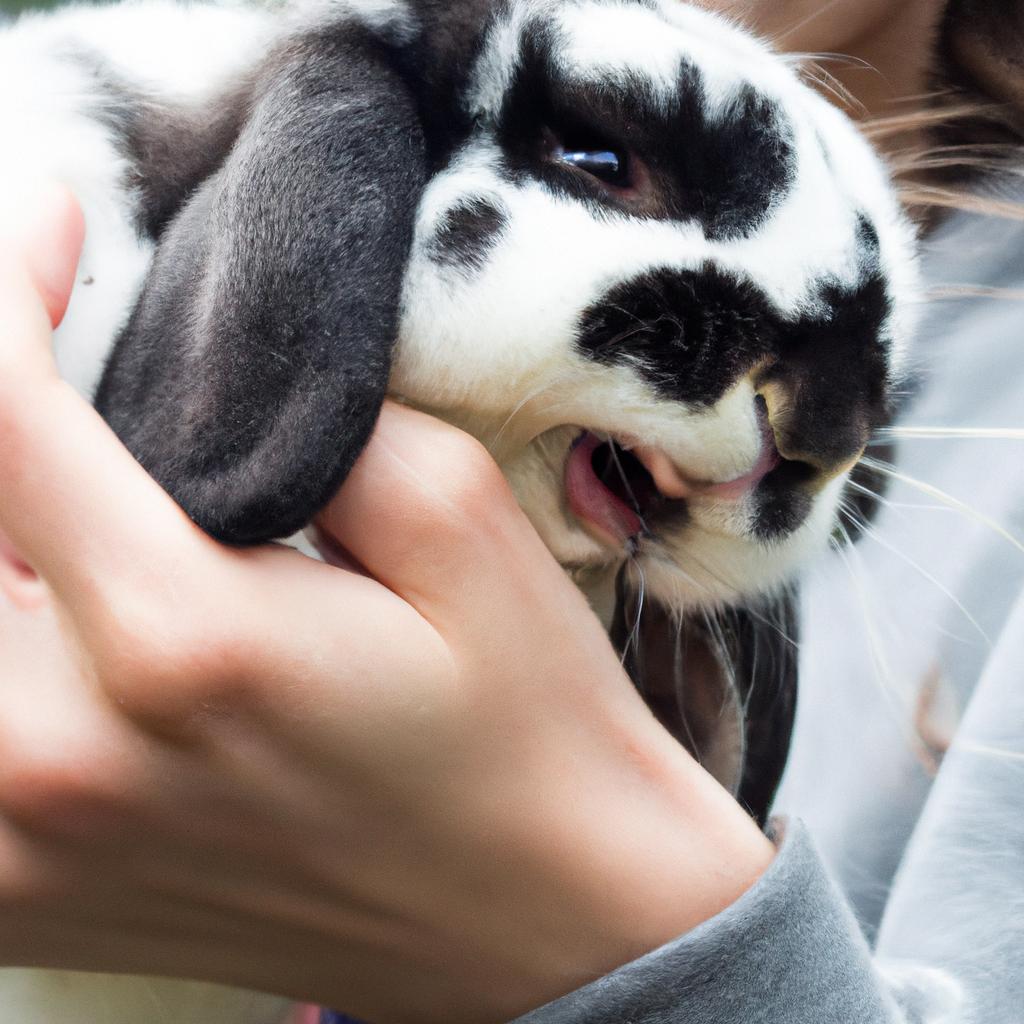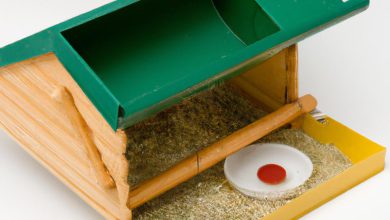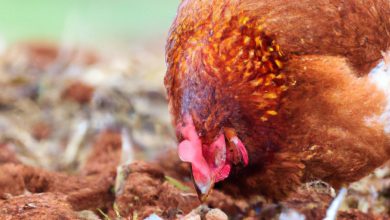How to Save a Rabbit from Dying: A Comprehensive Guide

As a rabbit owner, you want to ensure your furry friend stays healthy and happy. However, rabbits are prone to various health issues that can be life-threatening if not addressed promptly. In this comprehensive guide, Rabbitfact will share valuable insights on how to save a rabbit from dying.
Importance of Rabbit Care and Health

Rabbits have specific needs that require attention to maintain their health. They need a balanced diet, regular exercise, and a clean living environment. Neglecting these needs can lead to various health issues, including dental problems, digestive issues, and respiratory infections.
Overview of Rabbit Health Problems

Rabbits can suffer from a range of health problems, from minor issues such as ear mites and skin irritations to life-threatening conditions such as GI stasis and dental abscesses. It’s essential to be aware of these issues and take action as soon as possible to prevent them from escalating.
By following this guide, you will learn how to identify the signs of a sick rabbit, provide first aid in emergencies, prevent health issues, and use home remedies to treat common problems. Let’s dive into the details and learn how to save a rabbit from dying.
Signs of a Sick Rabbit
Rabbits are excellent at hiding their illness, and it’s crucial to keep an eye out for any signs of sickness. The following are some common signs that your rabbit may be sick:
Behavioral Changes
- Lethargy or lack of energy
- Hiding or reduced activity
- Lack of appetite or water intake
- Changes in behavior or personality
Physical Signs
- Runny nose or eyes
- Discharge from the ears or nose
- Swollen or bloated belly
- Unusual droppings or urine
- Changes in fur or skin condition
Common Illnesses and Diseases
- GI Stasis: A condition where the rabbit’s digestive system slows down or stops, leading to a buildup of gas and toxins.
- Dental Problems: Rabbits have continuously growing teeth that can cause problems if not properly maintained, such as overgrowth or abscesses.
- Respiratory Infections: Rabbits are susceptible to respiratory infections, which can cause symptoms such as sneezing, coughing, and difficulty breathing.
- Parasites: Various parasites, such as mites and fleas, can cause skin irritations, hair loss, and other health issues.
If you notice any of these signs, it’s crucial to seek veterinary help immediately. Early intervention can prevent the problem from worsening and potentially save your rabbit’s life.
First Aid for Rabbit Emergencies
Rabbits can experience emergencies just like any other pet, and it’s crucial to know how to handle them to save their lives. In this section, we’ll discuss the first aid measures you can take to help your rabbit in an emergency.
Handling a Sick or Injured Rabbit
When handling a sick or injured rabbit, it’s essential to be gentle and calm. Approach them slowly and quietly to avoid startling them. If your rabbit is injured, restrain them carefully to prevent further damage and keep them still. If your rabbit is ill, keep them warm and comfortable.
Stabilizing a Rabbit’s Condition
If your rabbit is experiencing an emergency, it’s crucial to stabilize their condition before seeking veterinary help. For example, if your rabbit is bleeding, apply pressure to the wound to stop the bleeding. If your rabbit is having difficulty breathing, ensure they have a clear airway and provide oxygen if possible.
When to Seek Veterinary Help
While you can provide first aid to your rabbit, it’s essential to seek veterinary help as soon as possible. Some emergencies, such as severe trauma or poisoning, require immediate medical attention. If you’re unsure whether your rabbit needs veterinary help, contact your veterinarian for advice.
By following these first aid measures, you can help stabilize your rabbit’s condition and increase their chances of survival in an emergency. Remember, always seek veterinary help if you’re unsure or if your rabbit’s condition is severe.
Preventing Rabbit Health Issues
As the saying goes, prevention is better than cure, and this holds for rabbits’ health too. Here are some key measures you can take to prevent health issues in your furry friend:
Proper Nutrition and Hydration
A balanced diet is crucial for maintaining a rabbit’s health. A rabbit’s diet should consist of hay, fresh vegetables, and a small amount of pellets. Avoid feeding your rabbit sugary or starchy foods, as they can lead to digestive issues. Ensure that your rabbit has access to fresh, clean water at all times. Dehydration can cause problems such as bladder sludge and kidney stones.
Exercise and Environmental Enrichment
Rabbits are active animals that require regular exercise to maintain their health. Provide your rabbit with ample space to move around and play. You can also create an enriching environment by providing toys and tunnels for your rabbit to explore. This will keep your rabbit mentally stimulated and prevent boredom, which can lead to health issues.
Regular Check-Ups and Vaccinations
Regular check-ups with a veterinarian are crucial for maintaining your rabbit’s health. A vet can identify any health issues early and provide treatment. Vaccinations can protect your rabbit from diseases such as myxomatosis and rabbit hemorrhagic disease. Ensure that your rabbit’s vaccinations are up to date.
By following these preventative measures, you can keep your rabbit healthy and avoid serious health issues.
Home Remedies for Common Rabbit Health Issues
Rabbits can experience several health issues, including GI stasis, dental problems, and skin irritations. While it’s always best to seek veterinary care for your rabbit, there are some home remedies you can try to alleviate these problems. Here are some options:
GI Stasis
GI stasis is a common issue for rabbits, where their digestive system slows down or stops completely. This condition can be fatal if left untreated, but you can try a few home remedies to help your rabbit’s digestion:
- Encourage your rabbit to eat hay or fresh greens to increase their fiber intake.
- Give your rabbit a tummy massage to relieve gas and encourage bowel movement.
- Offer a small amount of pineapple juice or papaya to help break down the blockage.
Dental Problems
Dental problems are another common issue for rabbits, and they can develop over time due to a lack of proper nutrition or genetics. Some home remedies you can try to alleviate dental problems include:
- Providing your rabbit with chew toys to help wear down their teeth.
- Feeding your rabbit hay or fresh greens to promote dental health.
- Offering your rabbit a small amount of apple cider vinegar in their water to help with tartar buildup.
Skin Irritations
Skin irritations can be caused by various factors, including allergies, parasites, or fungal infections. Some home remedies you can try to alleviate skin irritations include:
- Applying a small amount of coconut oil or olive oil to the affected area to soothe the skin.
- Bathing your rabbit with a gentle, fragrance-free shampoo to remove any irritants.
- Using a flea comb to remove any parasites or debris from your rabbit’s fur.
Remember, while home remedies can help alleviate some symptoms, it’s always best to seek veterinary care for your rabbit’s health issues.
Conclusion
In conclusion, taking care of your rabbit’s health is crucial to ensure that they live a happy and long life. By following the guidelines provided in this comprehensive guide, you will be able to identify the signs of a sick rabbit, provide first aid in emergencies, prevent health issues, and use home remedies to treat common problems.
Remember that prompt action is crucial when it comes to saving a rabbit’s life. Don’t hesitate to seek veterinary help when necessary, as they can provide expert care to ensure your rabbit’s recovery.
At rabbitfact.com, we are committed to providing valuable resources to help you take care of your furry friend. By following our tips and making sure you give your rabbit all the love and care they need, you can ensure a happy and healthy life for your pet.
Conclusion: So above is the How to Save a Rabbit from Dying: A Comprehensive Guide article. Hopefully with this article you can help you in life, always follow and read our good articles on the website: rabbitfact.com





